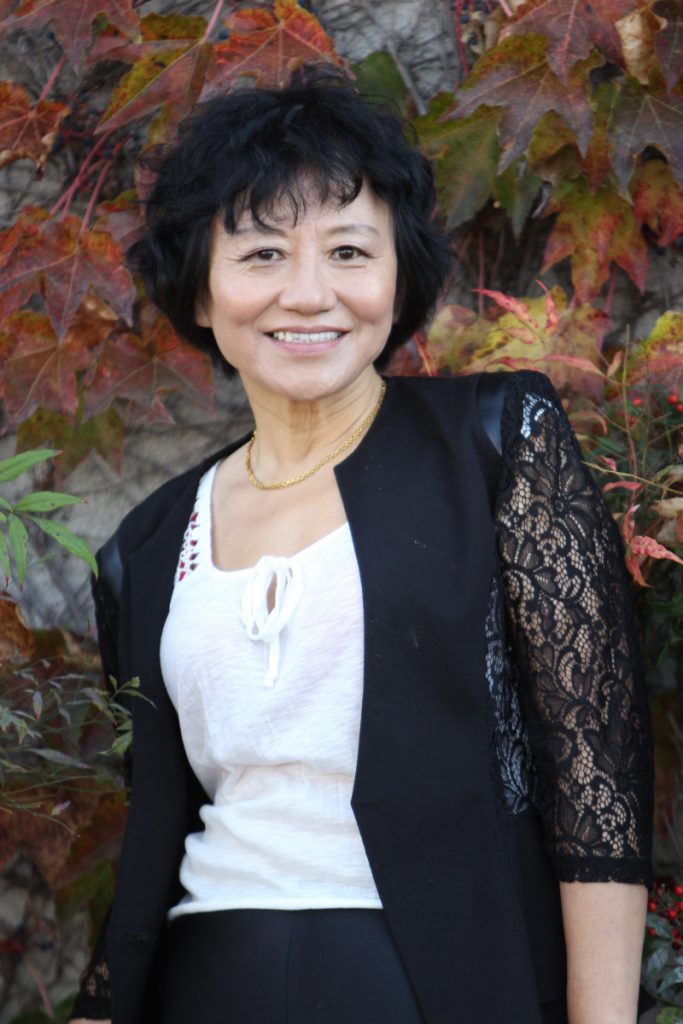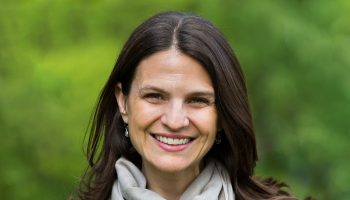MAX ZAMBRANO – STAFF WRITER

To understand China and life, Robin Wang believes Taoism holds many answers.
Taoism is an ancient Chinese philosophy now practiced around the world. Taoists focus on harmonizing with the natural world through meditation practices similar to that in Buddhism and Hinduism.
“I want to make the connection of how we can understand ancient wisdom and then living a flourished life in the 21st century,” Wang said.
At 1 p.m. Wednesday, June 30 in the Amphitheater, Wang will discuss Taoism in her lecture, “The Dao/Tao of Transcending: Yinyang Rhythm, Body Cultivation, and a Case of Religious Practice in China Today,” part of the Week One Interfaith Lecture Series, “21st Century Religion in China: Collaboration, Competition, Confrontation?”
Wang is a philosophy professor at Loyola Marymount University in Los Angeles. She is the author of YinYang: The Way of Heaven and Earth in Chinese Thought and Culture and several other books and academic journal articles.
Taoism is a foundation, or root, of Chinese culture, Wang said, influencing all aspects of life — from medicine to art to cooking. She said Taoism can answer philosophical questions like the origin of the universe, what things are made of, and how things change.
She said learning “suppleness,” the ability to adapt to new situations, is an important aspect of Taoism.
“A way to think about it is how bamboo blows in the wind,” she said. “It is resilience that will never break.”
Suppleness is what’s currently driving Wang in her professional and personal life. She said it’s about searching for truth and practicing goodness.
“Personally, I see it as being a mother,” she said. “How should you guide your children? Be a teacher. How do you help the next generation grow? You don’t have a fixed mindset, but you have a growth mindset.”
“I want to deconstruct this kind of bias about Chinese and Asian women. There is a mystique — people may think they are soft or submissive. I want to see how females play a role in today’s Chinese religion.”
Robin Wang, philosophy professor, Loyola Marymount University
COVID-19 is a key example of how humans deal with uncertainty, Wang said.
“Uncertainty is a living condition,” she said. “How should we go about it?”
Wang recently finished teaching a summer course on rituals and meditation.
In one assignment, she had students develop a 15-minute meditation exercise instead of writing a paper or taking a test.
She said young students need a social network to enjoy life, something that was interrupted because of the pandemic.
“Through this meditation, they created this space between themselves and others in the world,” she said.
She sees meditation as an important exercise for anyone, describing it as a fasting of the mind.
“Meditation is training for attention,” she said. “Attention is a mental muscle. How should we train it? Exercise it, and then bring it to perform certain tasks with efficacy.”
Wang also looked at ways rituals impact all parts of life, including worship, architecture, weddings, family, healing and health, food and sacrifice. She said each culture has its own version of performing rituals.
“Ritual is social grammar — it ties society together,” she said.
In her lecture, she will first describe YinYang rhythm by looking at its origin and key purpose. She said YinYang may appear simple, but she wants people to learn its complex features.
“Everything is interrelated,” she said. “You cannot have one without the other.”
Wang said to understand China, people should understand YinYang.
“YinYang is the key to unfolding Chinese religion and culture,” she said. “It’s a cultural DNA.”
In the second part of the lecture, she will discuss the human body and its connection to transcendence, she said.
“The body is a physical form, but also there is a soul connecting with this physical form,” she said.
In the third and final part of her lecture, Wang will share stories of female Taoists, specifically ones training to become religious leaders.
“I want to deconstruct this kind of bias about Chinese and Asian women,” she said. “There is a mystique — people may think they are soft or submissive. I want to see how females play a role in today’s Chinese religion.”
In addition, Wang hopes people take away some knowledge about Taoism.
“I think it’s good to let people learn something about this particular practice,” she said. “I want the world to know these people.”




